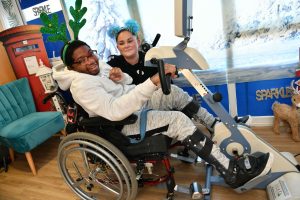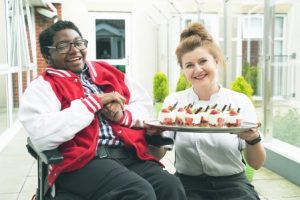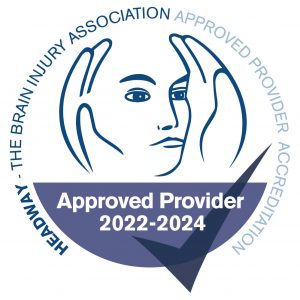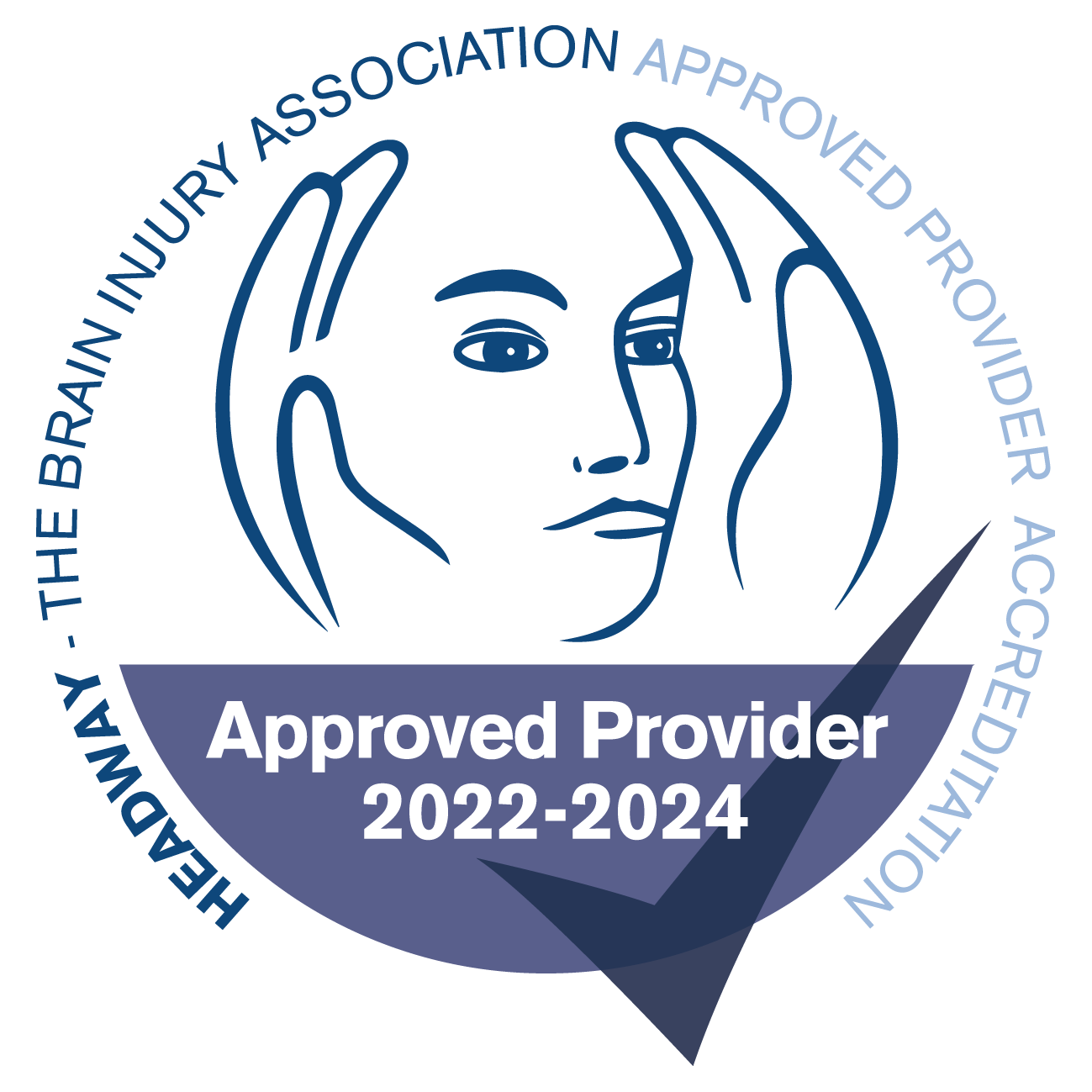Meet Tina (former 1 Sewardstone Close resident)
“The team at 1 Sewardstone Close has done so much for me. I lost the weight I needed to with the help of Curtis our fitness instructor. He helped me to build up my strength physically and mentally and to not feel so tired all the time. The support from the OT enabled me to learn to live my life again and the psychologists helped me with my temper.
The carers are patient and compassionate and they never gave up on me. They always believed I could do better even when I thought I would never get there. I have now moved to my own flat and I have so much to look forward to because of the help and support I received at 1 Sewardstone Close. I will always be grateful to everyone at 1 Sewardstone Close for helping me to get my life back.”
Tina suffered a hypoxic brain injury where the brain was starved of oxygen. This left Tina with moderate cognitive impairments, which included limited short-term memory recall, attention impairment and mood instability caused by withdrawal from drug replacement therapies. When Tina first arrived at 1 Sewardstone Close she was lacking insight into her cognitive difficulties. With no established routine or structure to her rehabilitation, Tina felt incredibly let down by the support she received at the previous service she was at.
Understanding Tina
The expert team at 1 Sewardstone Close devised a plan of care for Tina which adopted a multidisciplinary approach, identifying goals to help Tina understand her brain injury detailing how she would have to learn how to do every day tasks differently.
The team recognised that this would be an emotional process for Tina, with many challenges in terms of her mood swings and unpredictability so enlisted the support of a psychologist to offer guidance and counselling as required.
An assessment of Tina’s cognitive needs identified the areas where she needed support, specifically with memory, initiation and attention. Involving Tina was key to helping her understand her needs and the impact that this would have on her if she was living alone. Eventually, Tina started to identify herself that she used to be so good at remembering things and she would be able to do so much for herself and she started to develop an insight into the challenges she now faced and was willing to accept help.
Clear rehabilitation goals
The team developed strategies with Tina like using calendars, diaries and note pads to help her remember what happened during her day.
This soon developed into practical skills, such as cooking, doing laundry, managing money, going out and cleaning her room. Initially Tina needed a lot of support to engage socially and complete everyday tasks, but with the use of prompt sheets, pictorial information and clear instructions to follow she made significant progress with her rehabilitation goals. Practising the same tasks over and over again helped with encoding information into her long-term memory, which meant that she did not need to rely on others so much to help her.
Charlie, our therapy dog also helped Tina during this process. Tina described how Charlie would help keep her calm when she was feeling anxious, by playing with her. She also described that by having someone else to look after helped her to take her mind of the challenge she was facing by providing a structure and a routine for her day.
Tina’s future
Tina always wanted to rehabilitate and go back into her community to live independently. After four years as part of the 1 Sewardstone Close family Tina has successfully moved into her own flat. Whilst she will need some support at home she will be able to live a full and meaningful life.






